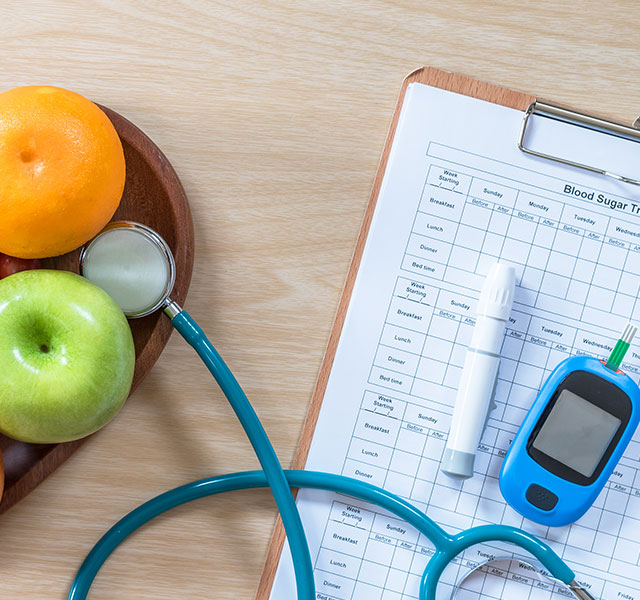We’ve known that those who have diabetes are at a higher risk of developing a severe case of COVID-19. But research is now showing that a COVID-19 infection may increase the likelihood of developing diabetes—even up to a year after recovering from the virus.
A recent study, published in The Lancet Diabetes & Endocrinology, found that people who had COVID-19 were around 40% more likely to develop diabetes (largely type 2 diabetes) than those who did not have COVID-19. The likelihood of developing diabetes increased with the severity of illness—a COVID-19 hospitalization tripled the risk of developing diabetes. But people who had mild infections were also at a higher risk of developing diabetes compared to those who never had COVID-19.
How COVID-19 Could Lead To A Diabetes Diagnosis
So how could COVID-19 cause diabetes? Arti Bhan, M.D., division head of endocrinology at Henry Ford Health, explains two theories.
“One potential explanation is that there are proteins called ACE receptors located in multiple organs of the body—the lungs, kidneys, blood vessels—and COVID-19 attaches itself to these receptors. The pancreas could have these receptors too, so the virus could enter the body and attack the pancreas this way, damaging the body’s ability to handle insulin. But research on this is inconclusive.
“Also, if you become severely ill with COVID-19, it can cause what is called a cytokine storm, causing massive inflammation in the body and damaging the organs. So if the pancreas is damaged this way, it could result in type 1 diabetes. All of this said, the reasons behind how the virus attacks the pancreas isn’t clear.”
It is known, however, that if you have a genetic predisposition to developing type 1 diabetes, a viral infection could lead to its onset. In fact, viral infections have been implicated as a cause of type 1 diabetes in children and adolescents, says Dr. Bhan. A similar situation could be occurring with COVID-19.
“Ninety-six million American adults—more than 1 in 3—have prediabetes and more than 8 in 10 adults with prediabetes don't know they have it,” she says. “If these people contract COVID-19, they may then develop overt diabetes. Prediabetes does not cause symptoms and it can only be diagnosed with a blood test.”
In the study, those who were obese (a risk factor for type 2 diabetes) were more than twice as likely to be diagnosed with diabetes after contracting COVID-19. However, this doesn’t account for all of the newly diagnosed cases of diabetes in those who have had COVID-19.
What You Can Do To Minimize Your Risk Of Diabetes
It hasn’t been determined whether COVID-19 vaccination can prevent the onset of diabetes, but in theory, it should help reduce your risk, since vaccination can reduce the severity of COVID-19 infection. Other ways to reduce your risk of diabetes—and even reverse a type 2 diabetes diagnosis—include:
- Maintaining a healthy weight.
- Eating a healthy diet filled with fresh fruits and vegetables, healthy fats and lean protein.
- Exercising regularly. “It is recommended that patients with type 2 diabetes or prediabetes accumulate a minimum of 210 minutes per week of moderate-intensity exercise or 125 minutes per week of vigorous-intensity exercise with no more than two consecutive days without training,” says Dr. Bhan.
And if you’ve had COVID-19 or a viral illness within the past year, it’s a good idea to see your doctor and get screened for diabetes, especially if you have other diabetes risk factors. “Also, watch out for symptoms like unexplained weight loss, fatigue and increased thirst and urination,” says Dr. Bhan. “These are symptoms of diabetes.”
Subscribe to receive a weekly email of our latest articles.
To learn more about diabetes prevention and management, or to book an appointment with a diabetes specialist, visit henryford.com/services/diabetes.
Dr. Arti Bhan is the division head of endocrinology for Henry Ford Health and sees patients for diabetes, thyroid disorders and other conditions at Henry Ford Medical Centers in Detroit and Novi.



